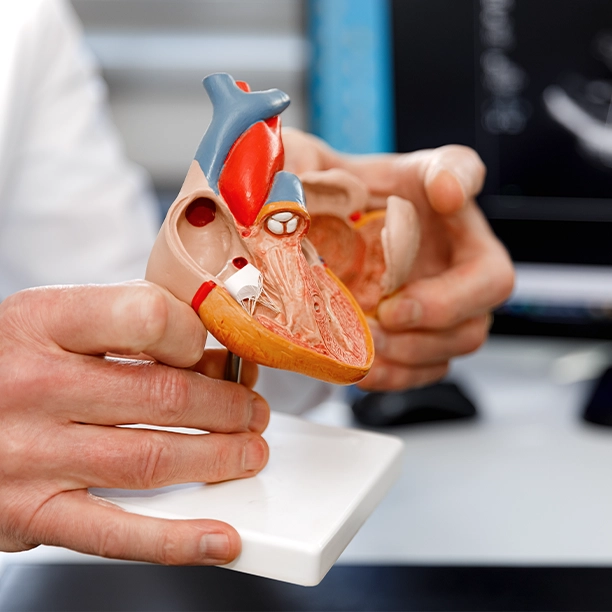 International Patient
International Patient Patient Portal
Patient Portal Lab Reports
Lab ReportsSpecialities

-
EMERGENCY : 0129-3512000
|
24x7

Heart valve replacement is an essential procedure that can save lives and greatly improve the quality of life for people suffering from serious heart valve disease.
Heart valve replacement surgery has two main categories;
Mechanical Valve Replacement: In this type, a doctor uses an artificial valve made of durable materials like metal or ceramic. These valves are long-lasting but require lifelong blood-thinning medication to prevent clots.
Biological Valve Replacement:This type of procedure is also known as tissue valves, these are mainly made from animal tissues (usually pig or cow) or donated human tissue. They do not require long-term blood-thinning medication but may need to be replaced after 10-20 years.
Heart Valve Replacement is required when one or more of the heart valves become dysfunctional due to conditions such as;
Accord Hospital, renowned for heart valve replacement surgery in Faridabad, India, offers state-of-the-art facilities and a team of highly experienced professionals. Recognized as the best hospital for heart valve replacement surgery, Accord Hospital ensures personalized care and advanced treatment options. Patients receive care from the best doctors for heart valve replacement surgery, ensuring the highest standards of medical excellence and compassionate care.
The timing of surgery totally depends on the severity of your condition and your symptoms. Early detection and intervention is often recommended to prevent complications and improve outcomes.
The recovery period involves a hospital stay of about 5-7 days, during which you will be monitored closely. Full recovery can take several weeks to a few months, depending on your overall health and the type of surgery performed.
Like any major surgery, heart valve replacement carries risks, including bleeding, infection, blood clots, stroke, valve dysfunction, and complications related to anesthesia. However, these risks can be minimized with proper preoperative and postoperative care.
